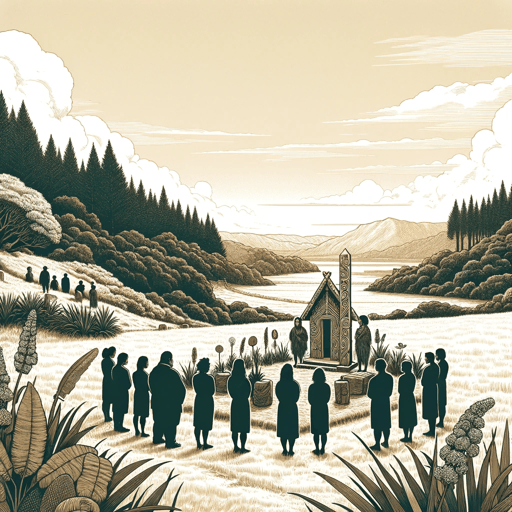56 pages • 1 hour read
Alan DuffOnce Were Warriors
Fiction | Novel | Adult | Published in 1990A modern alternative to SparkNotes and CliffsNotes, SuperSummary offers high-quality Study Guides with detailed chapter summaries and analysis of major themes, characters, and more.
Background
Socio-Cultural Context: The Māori Experience Since the Mid-20th Century
New Zealand’s colonial history is one inscribed with the many efforts of the British Crown and colonial settlers to dispossess the Māori of their land, and cultural identity, socioeconomic growth and stability, and instill a structure of British assimilation and exploitation. Although the exact date that colonialism started is disputed, the Treaty of Waitangi is typically referred to as the formal starting point. Signed in 1840, the treaty was an agreement between several Māori chiefs and the British Crown to establish a framework for their relationship and to ensure the recognition and respect of Māori rights. The treaty was based on four general points: partnership (wherein Māori and the British Crown would cooperate and share in decision-making), protection of Māori interests (wherein Māori had rights to ownership of lands, forests, fisheries, and other resources, as well as the same rights and privileges as other New Zealand citizens), governance (wherein the British Crown could establish a system of governance while the Māori retained control and authority over their own affairs, customs, and traditional practices), and equality in treatment.
The documents of this treaty were issued in two languages, English and te reo Māori, but the translated texts had stark differences: the English text emphasized the authority and sovereignty of the Crown, while the te reo text emphasized the Māori authority.

